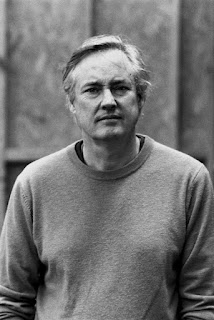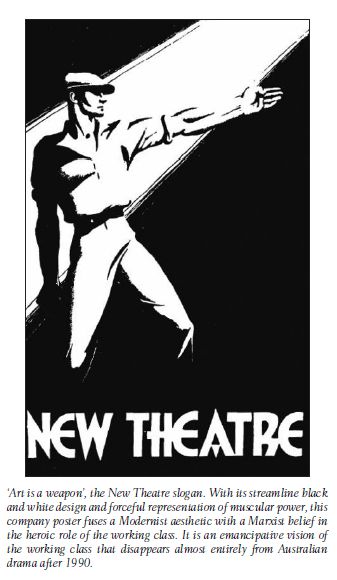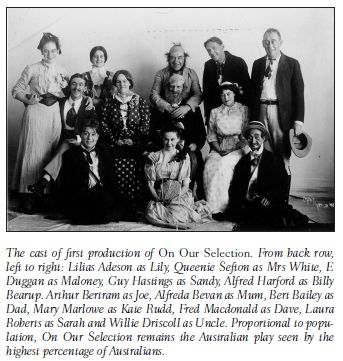 |
| Julian Meyrick Photo: Christopher Deere |
Australia in 50 Plays by Julian Meyrick. Currency Press, Sydney, March 2022.
Media Contact: Martin Portus, Phone 0401 360 806 mportus2@tpg.com.au
Reviewed by Frank McKone
Julian
Meyrick has written an academic work of great importance. He helps us
understand our own culture in a quite unusual way. I need to begin a
little differently in order to explain.
I am sorry. Sorry that I
have not read, and certainly not seen, more than a limited number of
the 50 plays Meyrick has selected. And sorry, therefore, that reviews I
have written in the past twenty years, the period covered in his last
two chapters out of eight, have not been informed as they might have
been – even should have been. I may even apologise for referencing the
English and the Irish – Shakespeare and Shaw – so much when considering
the Australians – say, David Williamson and Nakkiah Lui.
My
natural assumptions about the theatre canon were established at Sydney
University, where in 1960 I failed 3rd Year English. The crucial
question was asked about the future of poetic verse-drama. I wrote that
Christopher Fry, T S Eliot and Douglas Stewart were already out of
date, so it had no future. This was a sociological argument, I was
told, not the required literary argument. Fail!
I reckon, though, I failed too because I dared to mention Fire on the Snow by the Australian, Douglas Stewart.
I knew it was daring to do so, because in those three years’ formal
education it was made clear that Australia had no literature worth
academic study. In 1961 I wrote favourably of Murder in the Cathedral,
mentioned no Australian writers, and passed my Bachelors Degree. My
Masters Degree, as you would expect, was a study of Bernard Shaw.
I
start with this personal anecdote because Julian Meyrick makes sure we
understand how his personal experiences as a theatre practitioner
underpins his need to explain why he should open up our cultural
knowledge and his reasons for choosing these particular 50 plays,
written since Australia became a legal entity by the passing of the
Commonwealth of Australia Constitution Act 1900 (UK), s. 9 by the
British Parliament; Ratified: 6 July 1900; Date effective: 1 January
1901.
My time at Sydney University becomes relevant when I find
that Douglas Stewart’s verse dramas created, even more than they
reflected, crucial changes in our culture, well before Ray Lawler wrote The Summer of the Seventeenth Doll, first performed at the Union Theatre in Melbourne on 28 November 1955: “While the Doll’s
status as a cultural catalyst is important, the environment that
conditioned its production and reception was the achievement of prior
artists. The Doll may look like the start of the Australian drama
narrative, but it is the middle of it, the reward for the steady
creative toil of post-federation theatre. Borrowing the observation of
Indigenous artist Gordon Bennett, by the 1950s, Australian drama had
enough of a past to conceive a future. That this past was—and
remains—largely unacknowledged, reflects the difficulty Australia has of
owning its past generally. In my Conclusion I consider how our negative
view of nationhood is preventing proper understanding of the role and
value of Australian drama.”
The Contents page of Australia in 50 Plays is the work of a stirrer [my comments]:
Chapter 1. 1901–1914: Ozziewood [not exactly Hollywood]
Chapter 2. 1915–1929: Unknown knowns [not admitting what we don’t want to think about]
Chapter 3. 1930–1945: The real Australia [really?]
Chapter 4. 1945–1960: A step change [waving; not drowning]
Chapter 5. 1961–1975: Not better, just different [just so]
Chapter 6. 1976–1990: The compelling mood darkens [what Lucky Country?]
Chapter 7. 1991–2005: The End (yet the persistence) of History [to the Right or to the Left?]
Chapter 8. 2006–2020: The return of the nation [Black is the New White]
Conclusion "…the historically indisputable fact that drama is a serious mode of inquiry on a par with academic research…"
But this is the sort of stirring the pot that nowadays I find in The Saturday Paper.
Meyrick’s work combines details of information that are alluded to, but
often not made explicit by others, with carefully thought-through
critical analysis. New lights are shone from different angles than I
expected. Academic history becomes a personal conversation. It’s as if
I am watching a play, hearing what the characters say, picking up the
nuances behind their words and actions, even in the silences. And
thinking and feeling what I might say or do in response.
“There
is something deeply dispiriting about the absence of women from key
roles in Australian theatre as it ‘professionalised’” he says in Chapter
4, and I’m thinking but there are all those plays he’s told me about in
the first half of that century written and directed and presented in
theatres led by women – some even Communists, what’s more. So what
happened to the women after World War II?
What happened to
playwrights “such as Betty Roland, Katharine Susannah Prichard, Hilda
Bull, Henrietta Drake-Brockman and Dymphna Cusack, and directors like
May Hollingworth (the Metropolitan Theatre), Doris Fitton (the
Independent Theatre, Catherine Duncan (the New Theatre) and Barbara
Sisley (La Boite) [who] are the prophets and pathfinders of Australian
Drama, their creative and management talents transforming it into a
serious cultural force”?
Of course I’ve never forgotten One Day of the Year
(the first professional season was in April 1961 at the Palace Theatre
in Sydney as I was repeating 3rd Year uni) – but it was written by a
bloke. Alan Seymour. But then, at its debut on 20 July 1960 as an
amateur production by the Adelaide Theatre Group, Jean Marshall, the
Director, and those involved in the Adelaide production had received
death threats – as did Seymour when I saw it. So at least Alan Seymour
was my kind of bloke.
And Julian Meyrick is certainly my kind of
academic historian, writing the right stuff for anyone active and even
merely interested in theatre – Australian or of any other kind.
© Frank McKone, Canberra



ReplyDeleteOur fertility journey
!We are sharing this story to encourage anyone who is struggling with fertility. Don't give up! For the past 6 years, my husband and I have been trying to conceive. For the first two years, we had no success trying naturally. We tried month after month and were still receiving negative test results. a friend advise me to contact a Dr nogokpo Healing spiritualist who help with fertility with his medicine, i collected him contact an explain my situation to him and he prepared for me a herbal medicine which i took as describe he instructed I had a successful pregnancy.i became pregnant very quickly without know delay ,I am giving you a small understanding that if you are looking for the easiest ways to get pregnant and you are having some trouble, there are ONLY one solutions out there for you .i will highly recommend him via. email (nogokposh@gmail.com) whats-app +233 24 095 7817 .I am forever thankful Dr nogokpo Healing